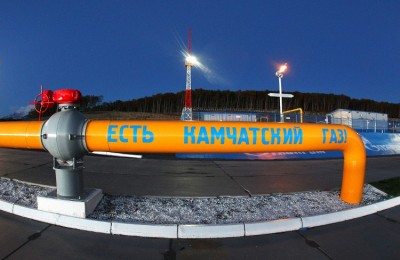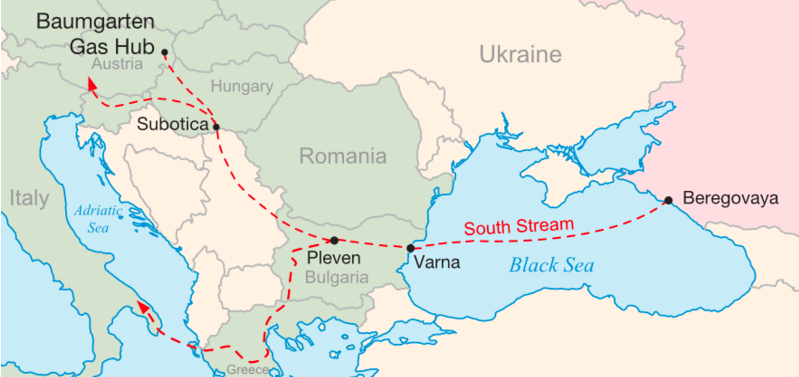Gazprom operation launched

(BRUSSELS2) As we said, Gazprom is a strategic tool as effective as a Sukhoi squadron (read: Gazprom gets turned on (Shift). And the Russian power will not let down its energy giant. Moscow is thus preparing to use, without complex, its economic weight. And Europe - or nearby countries - could start to get the bill...
Moldova, the first victim
The first pressures have just hit Moldova, this landlocked country between Ukraine and Romania and through which transits, towards the EU, about 20 billion cubic meters of gas per year (and half of whose gas pipelines belong to Gazprom) . Russian Energy Minister Alexander Novak has offered Moldavian Prime Minister Vlad Filat a reduction in the price of gas if his country agrees to give up energy cooperation with the European Union. "The proposal is for the Moldovan side to denounce the protocol of accession to the energy cooperation agreement with the EU. This is the condition for examining the issues of lower gas prices and debt relief, which currently stands at $4.1 billion. (3.17 billion euros)» declared A. Novak, before specifying that “Moldova wants a 30% reduction».
European energy cooperation, to which Moldova joined in 2009, consists of opening the European energy market to certain Eastern European countries (Albania, Bosnia and Herzegovina, Macedonia, Montenegro, Serbia, Kosovo and Ukraine.)
For his part, Putin added on Wednesday that he hadconsidered possible to favor the influx of Russian investments in Moldova". The day before, Tuesday September 11, its Prime Minister Dmitry Medvedev discussed with his Moldovan counterpart visiting Moscow, the possibility of closer economic cooperation between the two countries. And who could we see during this working breakfast? Neither more nor less than the vice-president of Gazprom, Valeri Golubev. The country therefore received an official invitation to join the Customs Union between Russia, Kazakstan and Belarus, if and only if Moldova cut the energy cord with the EU.
The European Commission has so far declined to comment on the situation.
The complex case of Bulgaria
Russian state-owned Atomstroyexport announced this on Tuesday (September 11). Bulgaria could pay up to 1 billion euros to the company, following the Bulgarian decision to cancel its project to build a nuclear power plant in Belene. According to the daily Diary, proceedings have already been initiated with the International Court of Arbitration in Paris. The billion requested would correspond, according to Atomstroyexport, to thecosts of all work carried out for the project, that of the material, the losses and the rest”. It must be said that relations have not been good for some time now. While work was interrupted last July, Atomstroyexport had already requested 58 million euros for late payments on the first two reactors at the Bélène power plant. Of course, this officially has nothing to do with the proceedings against Gazprom. And this litigation follows its own life. But Rosatom (the parent company of Atomstroyexport) come from the same bath, the former state conglomerates. And they signed an agreement at the end of 2008 to coordinate their investments in the energy supply of the gas networks to deliver gas to the Russian regions... and to Western Europe. Not to mention the common courses of leaders...
 Bulgaria had canceled its nuclear power plant project in a post-Fukushima context and following reports that described the area as too seismic. Critics at the national level were also rife about the economic cost of the project. A referendum could take place in the spring of 2013 to decide whether or not to resume construction of the plant. The country has very complex energy relations with Russia. Sofia depends 100% on Russian gas and 89% on Russian oil. An agreement on the price of gas for the next 7 years and linked to a second agreement on the development of the South Stream gas pipeline through Bulgaria, was previously due to be signed on 15 November. But the Bulgarian president did not hesitate to play the same game as his Russian counterpart by suggesting that the South Stream project could suffer from these tensions. "A company allowed itself - without informing us - to claim a billion euros. I hope President Putin was not aware of this request. Because if he were informed, his meeting on November 9 in Bulgaria will not be pleasant. That's when we have to sign on South Stream." he told reporters.
Bulgaria had canceled its nuclear power plant project in a post-Fukushima context and following reports that described the area as too seismic. Critics at the national level were also rife about the economic cost of the project. A referendum could take place in the spring of 2013 to decide whether or not to resume construction of the plant. The country has very complex energy relations with Russia. Sofia depends 100% on Russian gas and 89% on Russian oil. An agreement on the price of gas for the next 7 years and linked to a second agreement on the development of the South Stream gas pipeline through Bulgaria, was previously due to be signed on 15 November. But the Bulgarian president did not hesitate to play the same game as his Russian counterpart by suggesting that the South Stream project could suffer from these tensions. "A company allowed itself - without informing us - to claim a billion euros. I hope President Putin was not aware of this request. Because if he were informed, his meeting on November 9 in Bulgaria will not be pleasant. That's when we have to sign on South Stream." he told reporters.
Cyprus, in the crosshairs?
Cyprus could also suffer the backlash of the European procedure and find itself caught between its allegiance to the EU and its economic interests with Russia. Cyprus has in fact discovered significant gas reserves and is logically looking for an operator. Last July, Erato Kozakou-Marcoullis, Cypriot Minister for Foreign Affairs, affirmed that two Russian companies had expressed their interests (along with 27 other companies) with regard to the 13 offshore extraction sites: Novatec and... Gazprom.
Cyprus today maintains very good relations with the former Soviet empire. Tourism is also one of the two main incomes of the Mediterranean island along with the maritime transport industry. Tourism sector in which the Russians contribute greatly since three new Russian consulates will soon open there. The problem could come from the fact that Cyprus has been waiting since last June for the acceptance of a Russian loan of 5 billion euros. Not insignificant sum for this country particularly affected by the crisis which hits Greece. When we see what Gazprom is accused of in Lithuania, Bulgaria, Romania, Poland, the Czech Republic, Slovakia, Hungary, Estonia and Latvia, we may have doubts as to the reasons for the attribution of this loan which for the moment "did not impose any conditions» and offered «a better interest ratethan the European offer, to use the words of Demetris Christofias, Cypriot president and “close” to the Putin government. A spokesperson for the Russian Ministry of Finance also declared on September 4 that “these discussions, of course, will take time and that nothing has yet been decided” while on the same date unofficial data already suggested the Commission's investigation into the activities of the Russian energy giant.
Next. Baltic countries, Greece, Poland, Slovakia or the Czech Republic could also receive a "friendly word" from the Russians, especially at the first frost of winter. To be continued...


